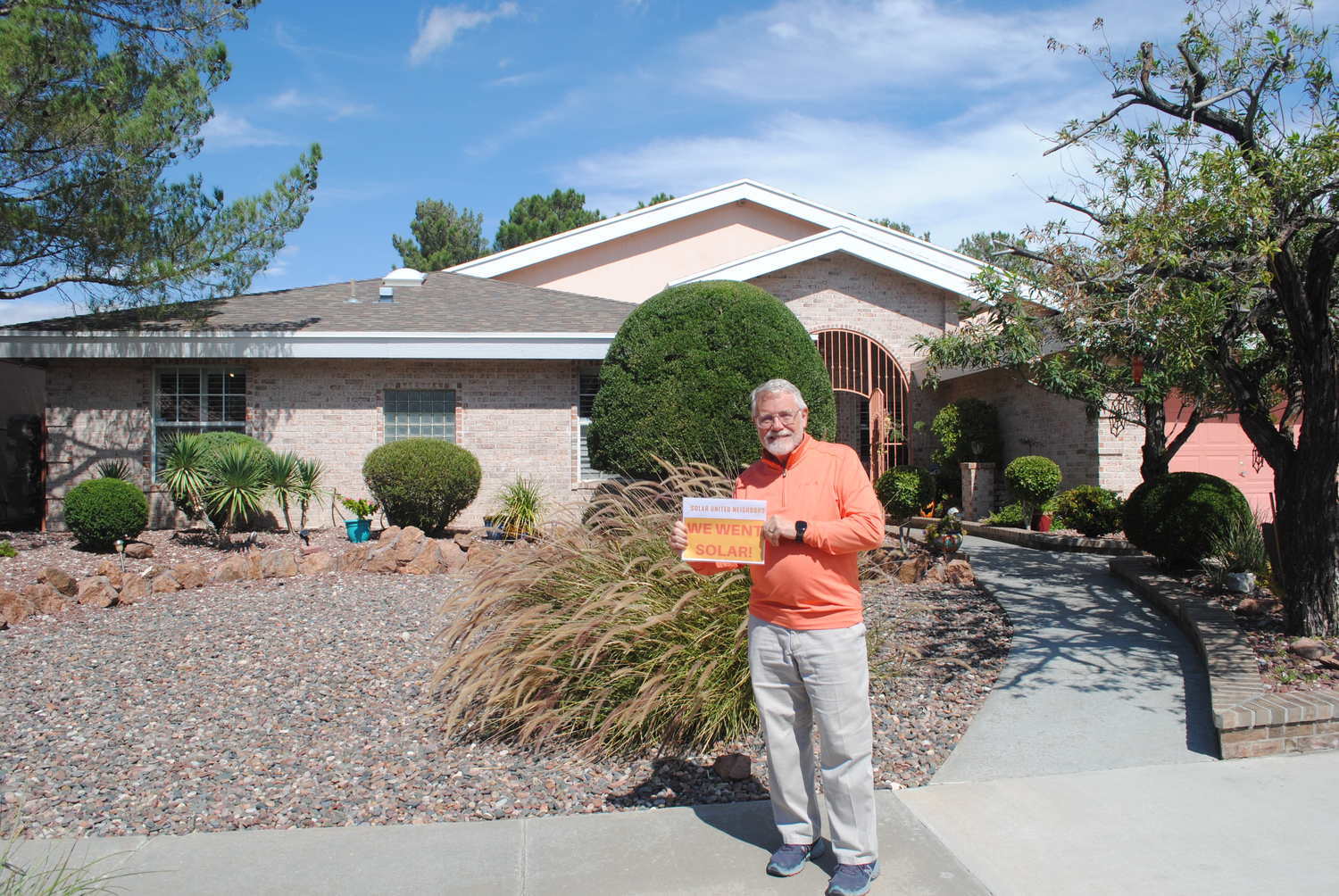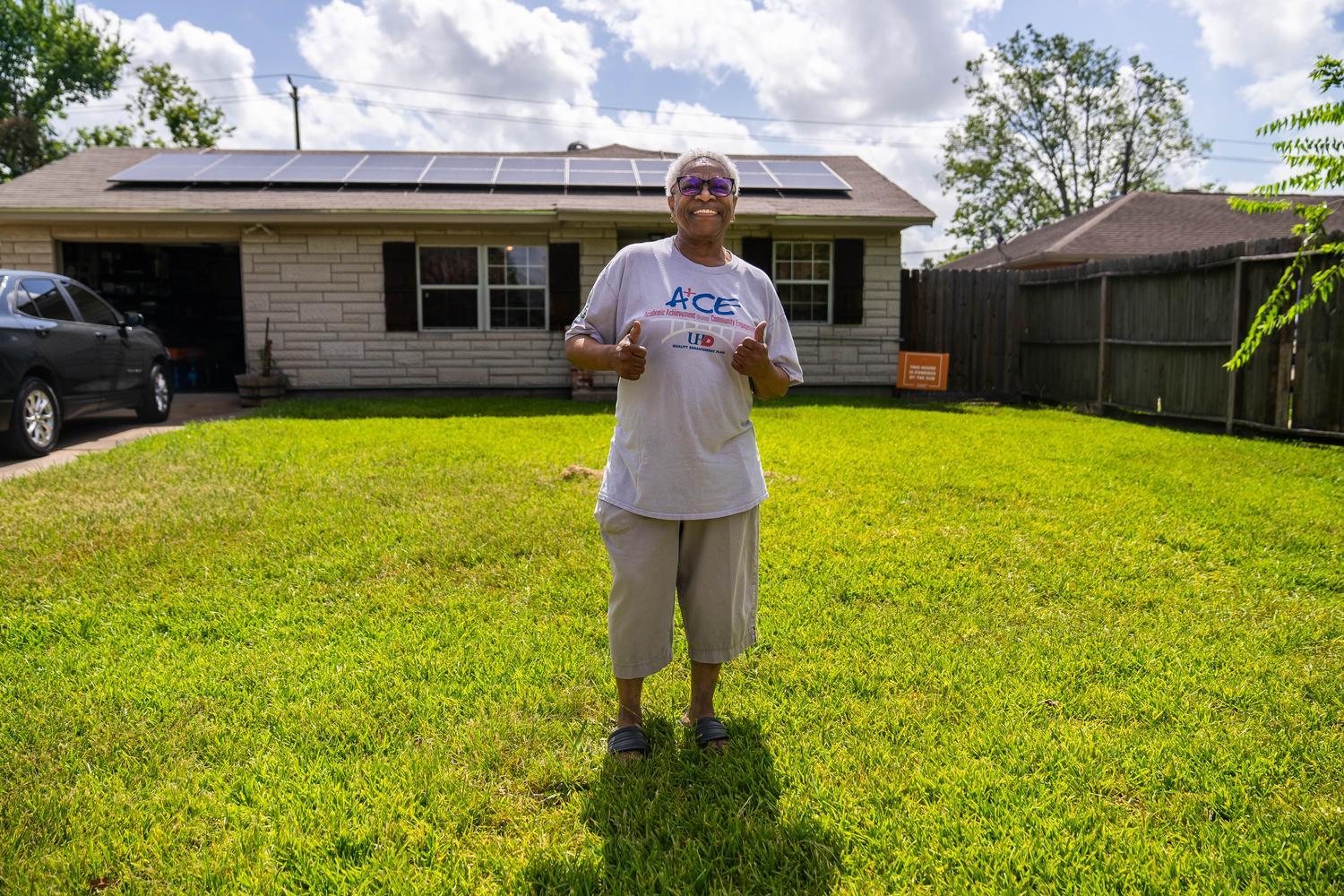Spotting solar scams in the Lone Star state
- Solar accessibility,
- Stories
Solar is booming in Texas — but so are the scams
The rise of solar energy in Texas is a welcome development. More and more homeowners are looking to save money by powering their homes with sunshine. But with rapid growth comes risk. While most solar companies are trustworthy, we’ve seen an increase in predatory companies looking to exploit people’s interest in going solar.
At Solar United Neighbors (SUN), we have seen how these scams can harm Texas families. We’ll walk you through key tips to help you make informed decisions, avoid scams, and go solar with confidence in the Lone Star State.
Common solar scam red flags to watch out for
One of the most common methods used by bad actors in the solar industry is aggressive, door-to-door sales. These individuals may push you to sign contracts immediately, without giving you time to review the details or compare options. Salespeople may use high-pressure tactics to get you to sign on the spot, often dangling unrealistic promises like “free solar” or the complete elimination of your electric bill. These claims can be deeply misleading.
In addition to door-to-door sales, misleading online advertising is another area of concern. You may have seen ads on social media platforms promising “no upfront cost” when going solar or claiming to offer access to limited-time government or utility programs. While some financing options do exist with little to no upfront costs, many of these ads are created by out-of-state companies looking to collect your information and sell you a product. They often employ deceptive tactics, such as mimicking official government sources or exaggerating savings, to encourage homeowners to share personal details or sign up prematurely. These misleading ads can be hard to distinguish from legitimate offers. That’s why it’s so important to approach solar financing offers with a healthy dose of skepticism and to do your homework.
One homeowner in Porter, Texas, shared how he was pressured into going solar by a company that guaranteed massive savings. Years later, his utility bills haven’t changed, and he’s stuck with costly monthly payments for a solar system that was never properly installed. To make matters worse, the company that sold it to him has since shut down.
This kind of outcome is exactly what SUN fights to prevent. “It’s important for people to know that going solar won’t make your electric bill disappear completely,” says Sam Silerio, Texas Program Director at Solar United Neighbors. “If someone is promising zero bills or rushing you to sign something, these are red flags. Taking the time to research your options and seek trustworthy guidance can protect you from making a costly mistake. Remember, SUN’s Solar Help desk is here to answer your questions.”

How to research solar companies
Before choosing a solar installer, take the time to vet them thoroughly. Look up their licenses on the Texas Department of Licensing and Registration. Make sure they carry insurance and verify their standing with independent rating sites. It’s worth reading recent reviews, not just from the company’s website, but from sources like the Better Business Bureau or state licensing boards.
Sam recommends that prospective solar buyers get at least three quotes to compare how the solar companies treat your questions and communicate — not just the prices they are offering. When evaluating installers, ask specifically about the price per watt, which provides an objective way to consider their price and understand the true cost of what you’re buying. This metric provides the fairest way for installers to talk about their product and gives you an ‘apples to apples’ comparison across different bids. A good installer will analyze your household energy use and design a system that meets your specific needs rather than offering a one-size-fits-all solution.
Don’t hesitate to ask for references from neighbors who’ve gone solar to learn about their experience. Dig deep into the warranty details offered by each installer, including potentially costly items like “truck roll fees” or trip charges for sending out technicians, and ensure labor warranty coverage is explicitly written into your contract. When reviewing proposals, verify that the installer isn’t assuming the federal solar tax credit with their pricing — you want the full price upfront in case you don’t qualify for the credit or if the program gets repealed. These details matter significantly in protecting your investment and avoiding unpleasant surprises down the road.
Smart ways to go solar safely
Going solar can feel overwhelming, but SUN’s group buying programs offer one of the smartest, safest ways to go solar. Solar United Neighbors has supported thousands of Texas homeowners through these programs, which harness collective bargaining power to secure better pricing while providing comprehensive education and expert guidance at every step.

If you’re feeling overwhelmed by the solar process or unsure where to start, our Solar Help Desk offers free, expert guidance to help you make informed decisions, without sales pressure or hidden agendas. As a nonprofit, we are installer and vendor-neutral, which means our only goal is to empower you with unbiased information that’s right for your home, your budget, and your future. Whether you need help reviewing a proposal or vetting installers, want to know if your roof is solar-ready, or just have general questions about costs or incentives, our team of experts is here to support you every step of the way. You can also download our free Go Solar Guide, packed with helpful tips, a financing overview, and a checklist to get you started. And if you’d prefer to talk it through, you can schedule a one-on-one call with a SUN expert at your convenience.

What to do if you are scammed
If you believe you’ve been scammed, the first step is to gather documentation. Save all contracts, communications (including text messages), screenshots of your system’s performance, and payment records. From there, file a complaint with the Texas Attorney General’s Office, which handles consumer protection issues. You can also report deceptive business practices to the Better Business Bureau and the Federal Trade Commission. These agencies help hold companies accountable and protect other Texans from falling victim to the same tactics. Consider reaching out to local news stations’ consumer protection teams or investigative reporters who specialize in exposing fraudulent business practices — they often have the resources and audience reach to pressure companies into making things right.
In addition, Solar United Neighbors may be able to help you troubleshoot performance issues or clarify your contract. Reach out to our Solar Help Desk to talk through your solar journey. Our goal is to make sure solar works for everyone. Solar should be empowering, not stressful. When homeowners understand the process, they can spot red flags early and avoid bad deals. “Our job at Solar United Neighbors is to make sure Texans have the facts. We’re vendor-neutral, so we don’t profit off your decision, we just want you to make the right one for your home,” said Silerio.
New legal protections are coming
Some relief is on the horizon for Texas solar consumers who’ve been burned by pushy salespeople and sketchy contracts. The recently passed Senate Bill 1036 will establish crucial protections for Texans going solar, requiring clearer contracts, better disclosures, and real consequences for companies that mislead customers. Having these basic protections in place will make all the difference — homeowners can focus on choosing the right system for them instead of worrying about getting scammed.

Protect yourself and power your home with confidence
The promise of solar is real. When done right, it can lower your electricity bills, increase your home’s value, and help you become more energy-independent. But it’s crucial to avoid rushing into a decision or falling for slick sales pitches. “Some companies use language that sounds exciting, like ‘free solar’ or no electric bills, but those claims just don’t hold up. People must understand exactly what they’re signing up for. If someone’s telling you to sign a contract on the spot, walk away. A reputable installer will give you time to review, ask questions, and feel confident in your decision,” Silerio said.
By taking your time, doing your research, and leaning on trusted resources like SUN’s solar co-ops and help desk, you can ensure that your solar journey leads to savings, not regrets.
Get the latest on solar straight to your inbox.
Fight for your solar rights.
Everyone has the right to go solar. Spread the sunshine nationwide and in your local community by taking action, joining events, and more.